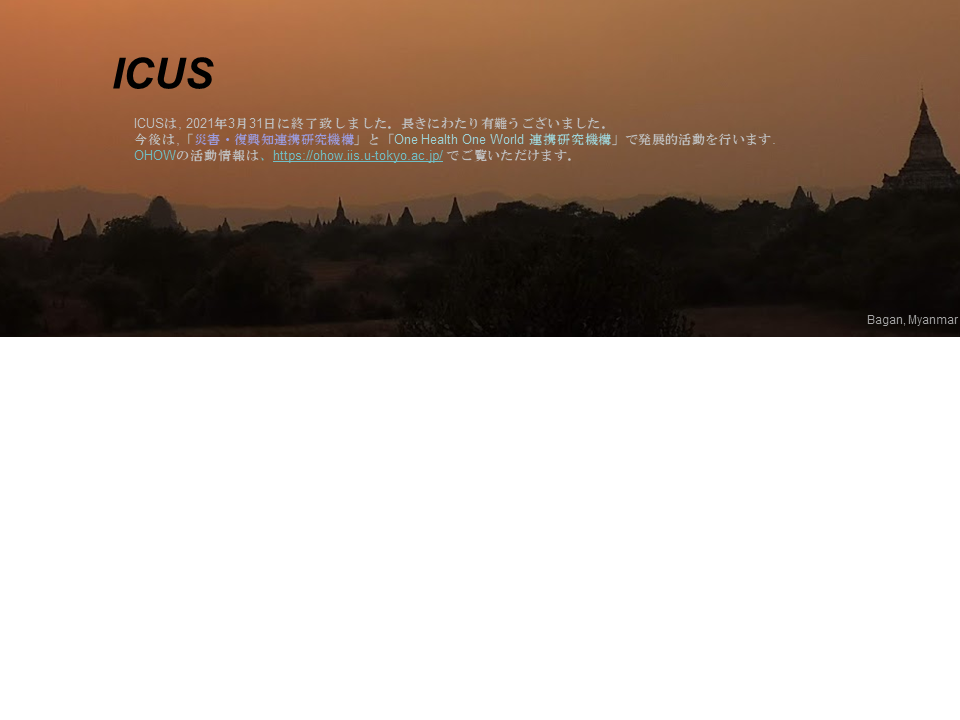After a period of strong economic growth Japan has become one of the world’s largest economies with well-developed social infrastructure. However, even with extensive road, water, harbors, and other extensive infrastructure facilities, the powerful Roman Empire fell into financial difficulties due to the enormous maintenance costs of these facilities, and even though they moved the capitol to Constantinople the Roman Empire was eventually ruined. History thus shows that the enhancement of social infrastructure is a double-edged sword, as it both enhances the prosperity of society but may also bring about decay and ruin.
Providing infrastructure facilities for a safe living environment for the prosperity of people changes over time and with social conditions, but instead of changing the role of infrastructure, we need to change or must change the improvement of the management methods, as we can learn from the past lessons.
Based on ICUS’s past 10 years of activity, the purpose of the “new” ICUS is to identify, investigate, and resolve issues towards the realization of sustainable urban systems for the prosperity and safety of society considering challenging socio-economic problems such as depopulation and aging society, shrinking economic resources, advanced technology, environmental awareness and climate change, dense and decentralized urbanization, and so forth. Specifically, three research divisions – “Urban safety and disaster mitigation division,” “Environment informatics division,” and “Social infrastructure management division” – will form the core of the “new” ICUS, and activities in these fields are intended to fulfill the objectives of “promotion of advanced research,” “construction of networks,” and “information collection and dissemination” considering the above-mentioned socio-economic problems.

